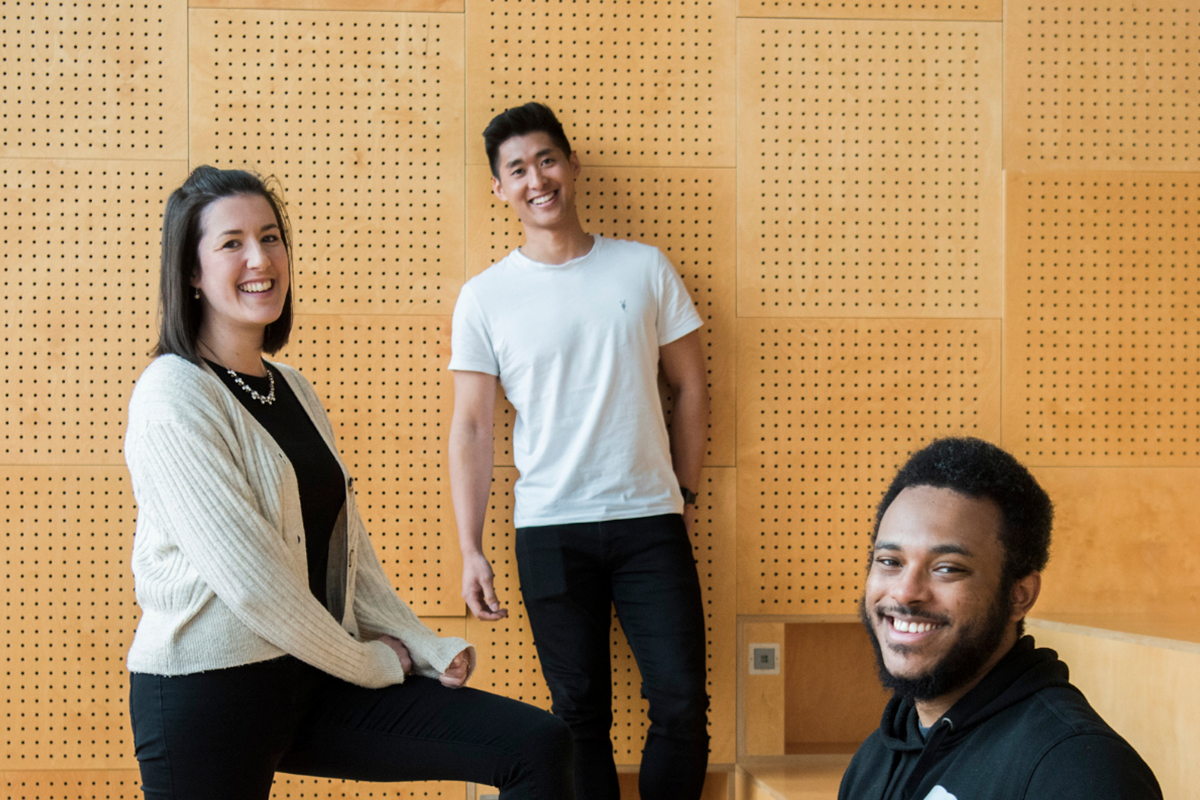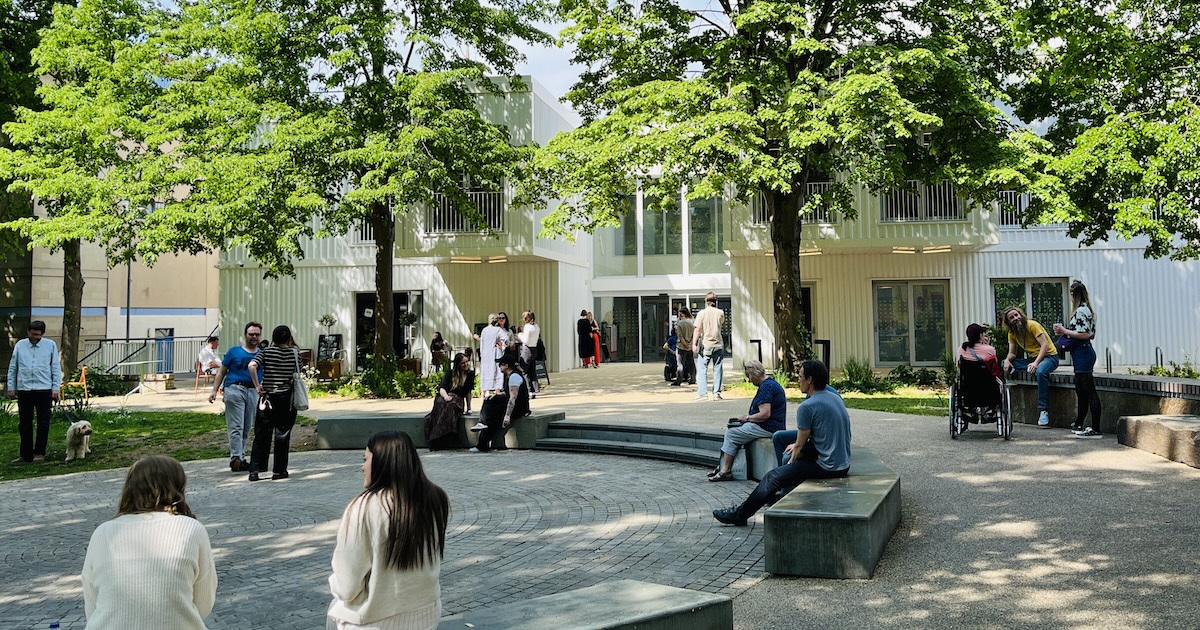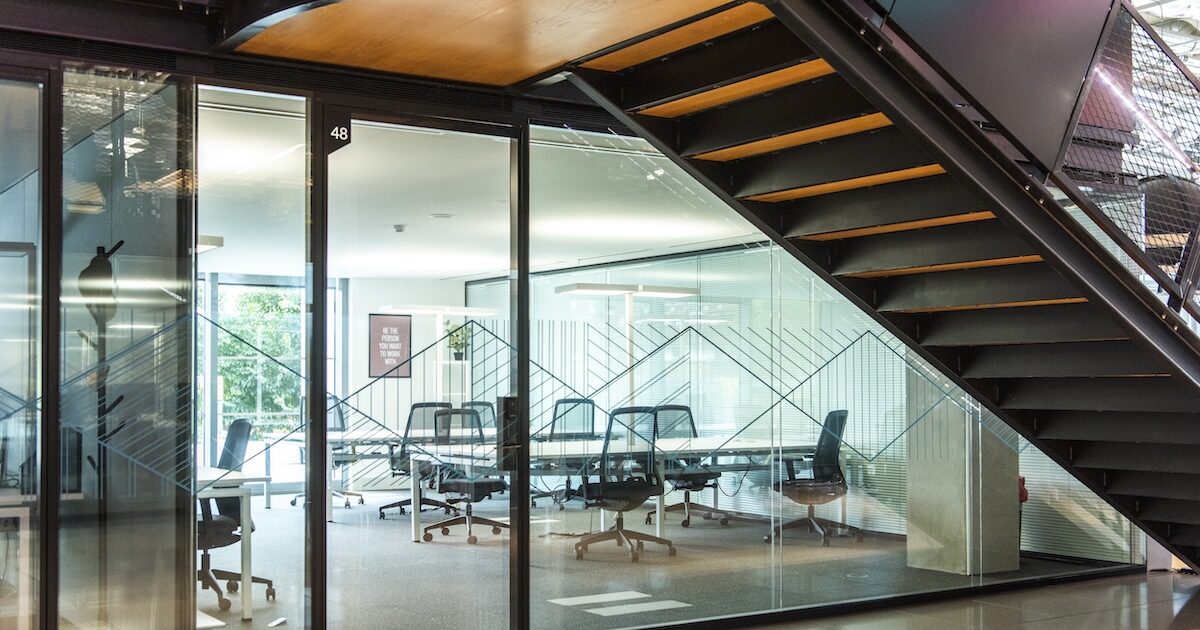It’s a good time to be a virtual reality (VR) startup. People are turning to virtual tourism experiences while foreign holidays are off the cards. Scientists are collaborating in virtual environments to design new medicines and understand disease. Deloitte predicts that demand from corporations and educational institutions will see the market for VR, augmented reality, and mixed reality grow by 100% in 2021 compared to 2019. And Plexal member MOONHUB is in prime position to become a leader in its corner of the market.
Founders Dami Hastrup, Vinh Ly and Hannah Sutcliffe, who were already friends at the time, bootstrapped the business in 2016 after noticing first-hand that training in retail environments was often boring, disengaging and ineffective.
They thought there was an opportunity to use immersive experiences to make training stick. After doing some initial pilots in a rented studio, the trio used a funding injection from a US-based private investment firm to develop their core technology, grow the team and join Plexal.
View this post on Instagram
Making the business case for VR
But back in 2017 and even 2018, VR was still largely associated with gaming and entertainment. Dami had to convince potential customers and investors that it could be a powerful tool for training. “VR started out as a novelty, just a bit of fun, but we’ve worked hard to change the narrative and show people the possibilities,” he says.
As part of his rebranding efforts for the sector, Dami adjusted to being a more prominent face of MOONHUB and used media appearances to speak about VR’s ability to grab people’s attention in a world that’s full of competing distractions. It’s ability to immerse people in the action and make them feel emotions makes it more effective than many traditional e-learning platforms. “We spend so much time on video calls these days, but how engaged are you? You might be on camera but also reading something on Twitter or watching YouTube on your phone. It’s just a screen, so I’m not really immersed in it. But with VR, your attention literally cannot be anywhere else.”
In addition, Dami says that being involved in a virtual environment helps people retain information and makes it more likely that they’ll act on it. There is an increasing amount of evidence backing this up: research from Stanford University and Technical University Denmark found that VR is 75% more effective at getting people to recall what they learn. And in 2018 KFC reported that trainees were able to learn the chain’s secret recipe 15 minutes faster when using a VR simulation, while a PwC study found that new managers were 35% more likely to act on what they learned after being trained virtually.
Not so fast
But besides the need to raise awareness about what VR could be used for, the entrepreneur also had to address a lingering concern potential clients had about the motion sickness VR can cause as the brain tries to match up conflicting signals about movement in physical and virtual environments.
We’ve learned more about how to counter this effect in recent years – researchers at the University of Waterloo in Canada found that detailed storylines can help reduce eye strain and upset stomachs. MOONHUB has also tweaked its virtual experiences and made use of new technology like six degrees of freedom tracking headsets. These new-and-improved headsets enable the virtual environment to adjust to people physically moving around freely, which reduces the gag factor. “We’ve worked on elements such as colour tones and motion to eliminate pretty much all the causes of nausea,” Dami adds. “We’ve learned some interesting things along the way too; for example men and women in our focus groups were seeing different colours so we adjusted the frequencies to fix that issue.”
Remote working accelerates demand
With the underlying tech improving, interest in virtual training picked up in 2019. But it took a global pandemic to give businesses the nudge they needed to actually invest in it. “We started running pilots with clients we’ve been in talks with for years because they really see the value of it now,” Dami says. “While they may have thought of VR training as a nice-to-have, the move to home working has shown them that they need a backup to on-premises training that’s just as effective. Our solution is easy to deploy remotely so we’ve seen a big uptick in interest.”
A major moment for MOONHUB was when a major food delivery app commissioned MOONHUB to design and deliver a VR-based training programme for its sales team. “They really appreciated the power of remote learning, and told us they wished they’d put the programme in place before the pandemic hit,” Dami says.
With clients waking up to the opportunity, the biggest remaining challenge MOONHUB has been facing is getting enough investment to not just survive a global pandemic but scale in response to demand. VC investment into VR and AR took a nosedive at the start of 2020 according to Digi-Capital. Meanwhile Plexal’s own research into overall startup investment since the first lockdown in March 2020 has shown that early-stage startups have seen the biggest decline in investment as VCs focussed on their existing portfolios. “It’s been a lot harder to build trust with an investor when you can’t meet them in person,” Dami says. “We’ve found that VCs seem to be quite wary of risk.”
But there was an investor who did trust in the team and bought into their vision. Following an introduction from Plexal to Sports Interactive’s studio manager Miles Jacobson, who is also based at the Here East campus, MOONHUB secured funding to fuel its growth spurt. “The team at Plexal have been real partners who have been with us throughout our journey – they’ve amplified our voice and helped us expand our network and connect with our investor when we needed it.”
Dami’s not slowing down now, though. He’s seeking further funding and is swooping up new business as he continues to fly the flag for VR’s potential: “Learning and reskilling are more important than ever, and VR will be central to that as more people become used to it. Eventually, the tech will also become so seamless that it will be as easy to enter a virtual experience as picking up an iPad. And MOONHUB is going to lead the charge.


